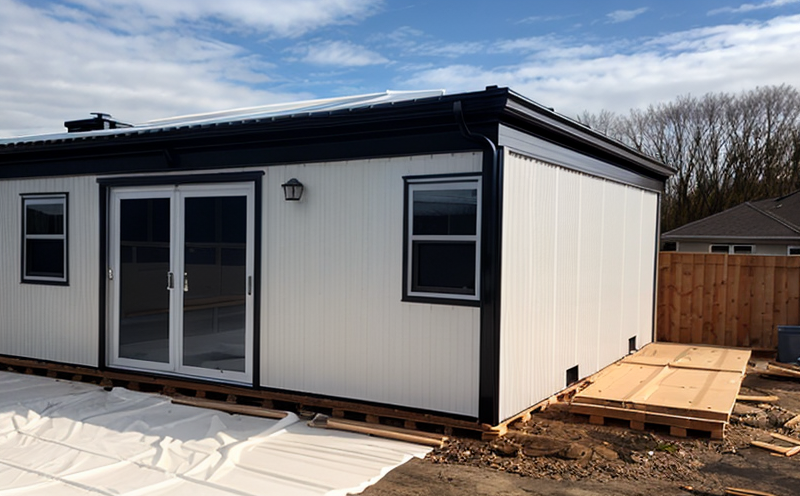ISO 13789-1 Thermal Performance Calculation of Buildings
The ISO 13789 series provides a comprehensive approach to calculating thermal performance, focusing on the building envelope. This service is essential for ensuring that buildings are energy-efficient and comply with international standards for environmental sustainability.
Thermal performance plays a critical role in determining how effectively a building retains or loses heat, which directly impacts its energy efficiency and occupant comfort. Understanding this parameter through accurate calculation helps architects, engineers, and facility managers make informed decisions during the design and construction phases of buildings.
The ISO 13789-1 standard specifically addresses the thermal performance calculations for building components such as roofs, facades, and floors using a series of methodologies. These methods are designed to evaluate how well these components insulate against heat transfer, thereby influencing overall energy consumption within the structure.
One of the key aspects of this service involves preparing test specimens according to specified dimensions that represent actual building elements under investigation. Specimens must be fabricated in controlled environments to ensure they accurately reflect real-world conditions. Once prepared, they undergo rigorous testing using specialized equipment capable of measuring temperature differentials across the materials.
A detailed report is generated post-testing detailing findings related to thermal resistance (R-value), heat transfer coefficient (U-factor), and other relevant parameters derived from ISO 13789-1. This information serves as valuable input for continuous improvement initiatives aimed at enhancing building performance standards globally.
The importance of accurate calculation cannot be overstated; improper assessments could lead to significant discrepancies between predicted versus actual performance, potentially resulting in wasted resources and non-compliance issues down the line.
Scope and Methodology
The ISO 13789-1 standard defines a structured approach to calculating thermal performance based on specific parameters relevant to building envelopes. It covers various methods for determining key indicators such as the heat transfer coefficient (U-factor) and the overall heat resistance of components like walls, roofs, and floors.
Methodology involves defining test setups that simulate realistic conditions found in buildings while allowing controlled variations to study different scenarios. This includes setting up boundary conditions for temperature differences between indoor and outdoor environments, controlling humidity levels, and ensuring consistent airflow around the specimen.
Testing typically takes place in climatic chambers equipped with precise sensors capable of monitoring minute changes in thermal properties over time. Data collected during these tests provides insights into the effectiveness of insulation materials used and any potential areas where improvements can be made.
In addition to laboratory-based evaluations, field measurements may also be conducted when necessary, especially for large-scale projects or those involving complex geometries not easily accommodated in standard test facilities. Fieldwork ensures that results obtained align closely with actual operational conditions experienced by the building after completion.
Benefits
- Enhanced Energy Efficiency: Precise thermal performance calculations help identify opportunities for reducing heating and cooling costs by optimizing insulation choices and design configurations.
- Compliance Assurance: By adhering to internationally recognized standards like ISO 13789-1, organizations demonstrate their commitment to sustainable practices and ensure regulatory compliance across jurisdictions.
- Better Decision-Making: Accurate data provided by this service enables stakeholders involved in building projects to make well-informed decisions throughout the lifecycle of a structure.
Eurolab Advantages
EuroLab offers unparalleled expertise and state-of-the-art facilities dedicated exclusively to providing comprehensive testing services aligned with global standards. Our team consists of highly qualified professionals with extensive experience in various sectors including building & infrastructure, manufacturing, healthcare, and more.
We pride ourselves on delivering reliable results backed by robust methodologies that meet or exceed international expectations. With advanced instrumentation and analytical techniques at our disposal, we ensure every aspect of your project receives thorough scrutiny.
Our commitment to quality extends beyond just technical capabilities; it encompasses exceptional customer service, timely delivery, and continuous improvement efforts aimed at maintaining industry leadership positions.





